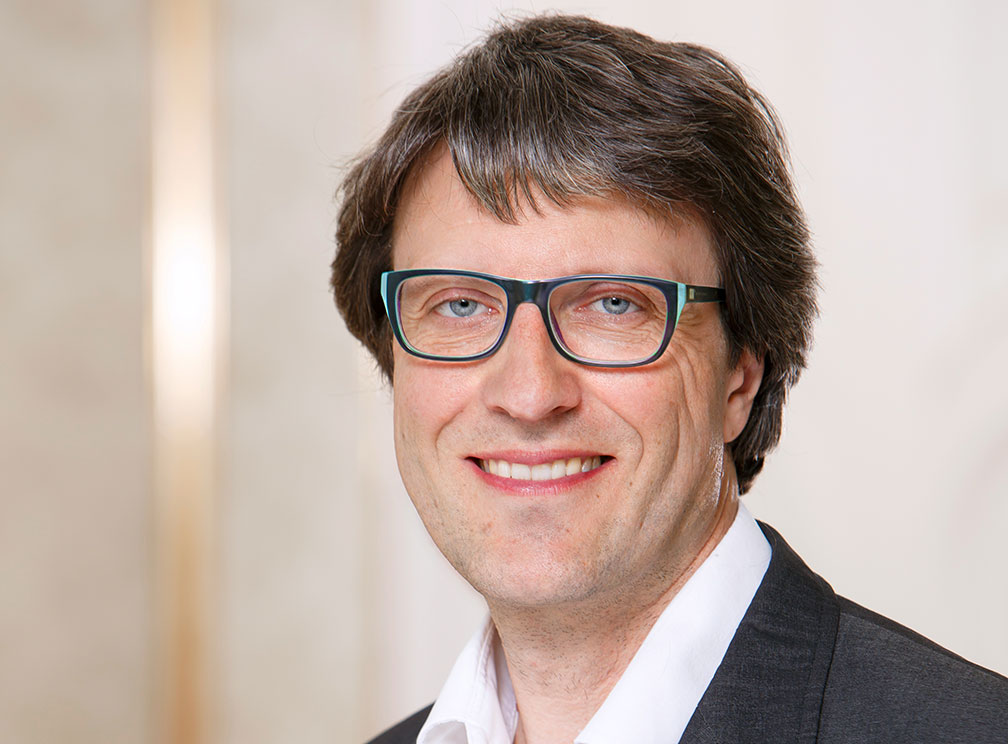Press releases on animals in research and teaching
Aroma of bread:
Modern and old wheat varieties taste equally good [10.12.2019]
Bread baked from modern wheat varieties are just as aromatic as that baked from old varieties. However, differences exist between the breads from different wheat varieties – and those that were grown in different locations. These were the findings made by a team of German and Swiss researchers under the leadership of Heinrich Heine University Düsseldorf (HHU) and the...more
Combating the climate crisis:
Plantations bind CO2 and bring rain to the desert [04.09.2019]
Large-scale plantations in desert regions offer several advantages. Firstly, plants bind carbon dioxide and thus help to store carbon. Secondly, large plantations can lower the mean temperature and trigger precipitation in arid regions. This special bio-geoengineering method is particularly relevant to the climate crisis, as the plantations can thus counteract water scarcity...more
Contract Signed:
European universities join forces to create a new generation of experts [03.07.2019]
JOINT PRESS RELEASE from the Universities of Hohenheim, Bologna, and Eastern Finland, AgroParisTech, BOKU Vienna, and Wageningen University and Research Centre In a bid to educate a new generation of experts, six European universities combine their strengths. The official start of the cooperation was the signing ceremony of a Memorandum of Understanding in Brussels. Under...more
Research-based learning:
Innovative teaching needs freedom, equipment, and more staff [07.06.2019]
Students should be actively involved in research from the very beginning, instead of just reproducing memorized knowledge: This is the central postulate of the international conference "focus Undergraduate Research Experiences (focusURE)," which is taking place today at the University of Hohenheim in Stuttgart. Students, universities, employers, and society would benefit...more
Privacy online:
Conference discusses state of the art and need for action [29.04.2019]
With the use of the Internet, social media and smartphones, privacy is no longer an individual matter, but must be negotiated at the social level - this is the credo of Prof. Dr. Sabine Trepte, media psychologist at the University of Hohenheim in Stuttgart. And this has consequences: for democracy, IT security and personal development. On 16 and 17 May 2019, experts will...more
“European Bioeconomy University”:
Six Universities Form International Alliance with Focus on Bioeconomy [21.11.2018]
JOINT PRESS RELEASE from the Universities of Hohenheim, Bologna, and Eastern Finland, AgroParisTech, BOKU Vienna, and Wageningen University and Research Think Tank for Europe: The six leading European universities in the field of the bioeconomy are planning to join forces in research, teaching/education, and innovation in this subject area. Following the initiative of the...more
Modern Food Biotechnology:
Germany and China Pursue Joint Research Plans
[18.09.2018]
Working together for better food: Chinese and German researchers want to cooperate more closely in the future. To close the past week, at a symposium at the University of Hohenheim in Stuttgart, Germany, top scientists in the area of food biotechnology from both countries came to initial agreements on implementing a joint research agenda. Their goal: Developing and improving...more
Inequality among the Elderly:
University of Hohenheim Conference Looks at Need for Policies [04.05.2018]
Meeting the demographic challenge, maintaining a high standard of life, and reducing inequality among the elderly: To reach this goal, the industrialized countries need to take appropriate political measures on time. Prof. Dr. Klaus Prettner drew this conclusion at today’s opening of the international expert conference “The Economics of Ageing and Inequality” at the University...more
54 Million Euros:
German Council of Science and Humanities Endorses Center for Animal Sciences [27.04.2018]
Animal well-being and animal health, reduced use of antibiotics, better use of resources, and reduced environmental effects: A key factor in livestock animals’ characteristics are the interactions between the animal and the billions and billions of microorganisms that are located in particular in the intestinal tract. Up to now, these processes have in large part not been...more
Meat substitutes and lentil pasta:
Legume products on the rise in Europe [12.02.2018]
Within the last four years, products containing grain legumes such as beans, lentils or soybeans have registered an increase of 39 % in Europe. Meat substitutes proved particularly successful with a growth rate of 451 % on the European market. These are the results presented ahead of the Global Pulse Day February 10th 2018 with participation of the Europe-wide TRUE research...more













